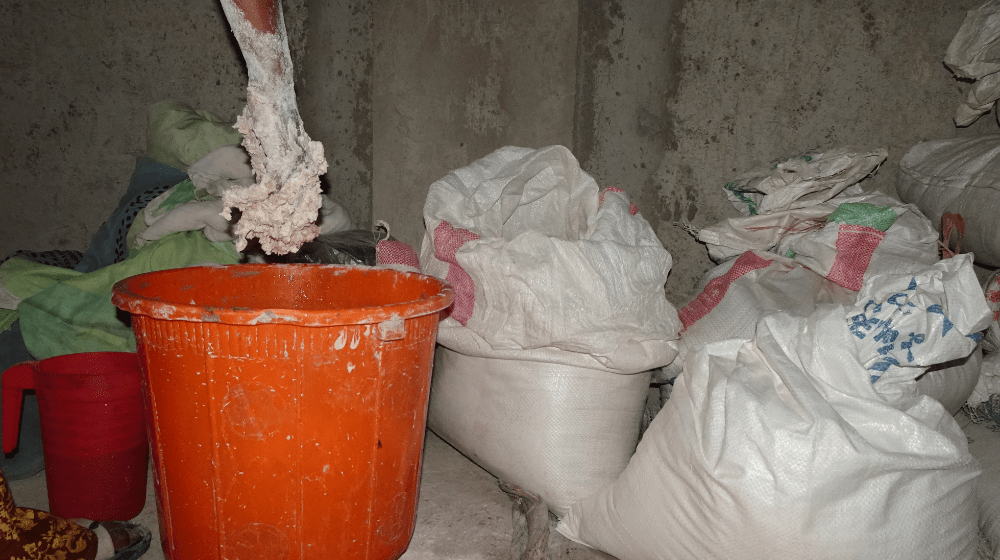Despite facing insurmountable obstacles, Saba*, at only 28 years old, has managed to support herself and her children. She is a single mother of four children all under the age of 10.
Prior to the Tigray conflict, Saba ran a successful restaurant business. When the conflict erupted in November 2020, she along with dozens of other women were imprisoned, and repeatedly assaulted by armed combatants. Once released, Saba and her children were forced to abandon their home and business to seek shelter in the capital city, Mekelle.
Saba found herself in the heartbreaking position of having to beg for food and money to support her family, while also suffering from deteriorating health. "My stomach was always bloated, my mind could never rest, I was always in pain," she recalls. After seeking medical care at the One-Stop Center at Ayder Hospital in Mekelle, she underwent several surgeries and gradually regained her health.
Comprehensive Care for a Resilient Recovery
Through the Response-Recovery-Resilience for Conflict-Affected Communities in Ethiopia (3R4CACE) project, funded by the World Bank through the Ministry of Women and Social Affairs and UNOPS, UNFPA supports seven One-Stop Centers that provide multi-sectoral services to survivors of gender-based violence in the Tigray Region. One-stop centers are designed to provide coordinated and integrated services to survivors of GBV; including medical services, case management, legal aid, and psychosocial support.
Through this project, UNFPA was able to maintain four One-stop centers while one center in Abi Addi was upgraded and is currently fully operational.
Joyce Paklaki, the head of the Mekelle sub-office, emphasizes the crucial importance of One-Stop Centers. "These centers are pivotal for the provision of holistic, quality GBV services and care. The integrated approach ensures survivors safely access comprehensive services within a single haven, sparing them the anguish of recounting their traumas repeatedly and reducing barriers to care which can impact on their recovery journey."
In addition to response services for survivors, the project also works on raising awareness to prevent GBV and about the services at the centers. This knowledge empowers survivors to seek prompt treatment, often within 72 hours—a crucial window for life-saving medical intervention, including prophylactics to prevent HIV and emergency birth control.
The program includes a referral system that offers cash support for transportation, allowing survivors to access specialized care.
Rise from the Ashes
After receiving medical treatment, Saba was referred to the Women's Association of Tigray. There, she received comprehensive case management support, including start-up capital to start her own business as part of the reintegration package. "I was desperate to work, to support myself and my children," Saba says.
Saba received $900 but decided to be cautious and only withdrew $200. “I had decided that I wouldn’t take out more until I proved to myself that I would be able to make what I had spent.” Her first business instinct upon receiving seed money was to start selling Injera. She then purchased a quintal of Teff and necessary equipment from the market and started approaching restaurants and hotels to find customers.
Just four months later, her business is thriving. Her clients include some of the largest hotels in Mekelle. She even saved enough to open a small shop in her neighborhood. "I wake up at 4 AM every morning and make over 400 Injera and bread. After delivery, I open my shop," she says. In her shop, Saba sells everyday items such as soap and tissues, as well as cement. She conveniently supplies nearby homeowners, eliminating the need for them to travel far.
Saba has now started sending her children to school and is considering a loan to grow her business. She wants to start a restaurant business again and would use the loan to purchase a refrigerator.
Saba is confident that she will be able to regain all that she has lost. "Everything gets better with hard work and resilience,” she says.
Women like Saba need our support to rebuild their lives. The UNFPA Humanitarian Response Appeal 2023 is calling for nearly USD 48 million to respond to the protection and health needs of women and girls across crisis-affected regions in Ethiopia. To date, 38% of the appeal remains unfunded.
*Name changed for the story.


